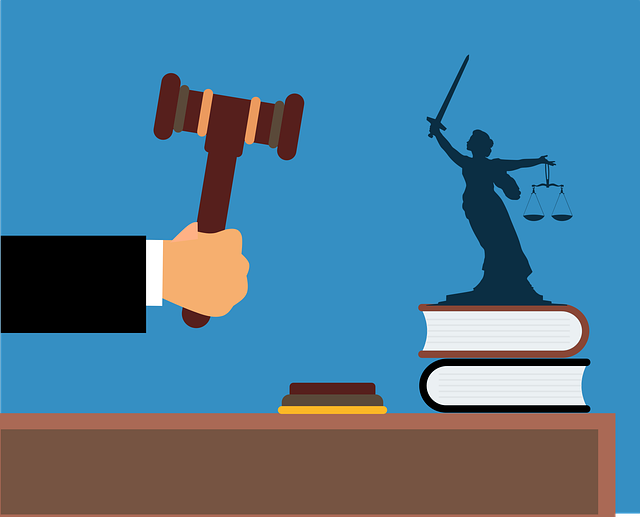Criminal Defense Attorneys play a vital role in safeguarding fairness within the complex Steps in Criminal Procedure Litigation. They guide clients through investigations, arraignments, trials, and post-verdict motions, ensuring due process. By strategically examining evidence, presenting laws effectively, and upholding ethical standards, these attorneys protect clients from unfair punishment. Through proactive case management and meticulous preparation, they navigate high-stakes scenarios, aiming for positive outcomes while maintaining client trust.
Criminal Defense Attorneys play a pivotal role in ensuring fair legal processes, safeguarding individuals’ rights, and upholding justice. This article delves into the multifaceted world of criminal defense, exploring key aspects that define their expertise. From understanding the intricate steps in criminal procedure litigation to ethical considerations and client-attorney dynamics, each section unravels a crucial element of this noble profession. By examining these elements, we gain insights into the comprehensive strategies and case management techniques employed in navigating complex legal landscapes.
- Understanding the Role of Criminal Defense Attorneys
- The Steps Involved in Criminal Procedure Litigation
- Ethical Considerations and Client-Attorney Relationship
- Preparing for Court: Strategies and Case Management Techniques
Understanding the Role of Criminal Defense Attorneys

Criminal Defense Attorneys play a pivotal role in ensuring fairness within the criminal justice system. Their primary responsibility is to represent and defend individuals accused of crimes, safeguarding their rights throughout the entire process. Understanding this role involves comprehending the intricate steps in criminal procedure litigation. From the initial investigation and arraignment to pre-trial hearings, trials, and post-verdict motions, these attorneys navigate a complex legal landscape on behalf of their clients.
By mastering the art of cross-examination, presenting compelling evidence, and leveraging applicable laws, Criminal Defense Attorneys strive to achieve extraordinary results for their clients. They employ strategic maneuvers to challenge the prosecution’s case, including raising constitutional issues, disputing evidence admissibility, and negotiating plea bargains when appropriate. Ultimately, their goal is to ensure that justice is served while protecting their client’s interests and safeguarding them from undue punishment or, in some cases, avoiding indictment altogether.
The Steps Involved in Criminal Procedure Litigation

The criminal justice system involves a complex series of steps in criminal procedure litigation that are designed to ensure fairness and due process for all involved. This process begins with the initial investigation, where law enforcement officers gather evidence and interrogate witnesses. Once sufficient evidence is collected, a decision is made whether to file formal charges against the accused individual.
The next phase involves the filing of charges and an arrest warrant by the prosecution, followed by notification to the defendant. The defendant then has the right to legal counsel, and they can either plead guilty or stand trial. Throughout all stages of the investigative and enforcement process, experienced Criminal Defense Attorneys play a crucial role in protecting their clients’ rights and ensuring an unprecedented track record in achieving favorable outcomes.
Ethical Considerations and Client-Attorney Relationship

Criminal defense attorneys play a pivotal role in navigating the complex steps in criminal procedure litigation. Among their many responsibilities, they must uphold ethical considerations that form the bedrock of the attorney-client relationship. This trust is paramount as it dictates the outcome of cases involving life-altering consequences, such as jail time or significant fines.
The ethical guidelines are designed to ensure that attorneys act in the best interest of their clients while maintaining the integrity of the legal system. These principles guide lawyers through every phase of representation, from initial consultations to closing arguments in jury trials across the country. The attorney-client relationship is a sacred bond, where confidentiality and unwavering loyalty are non-negotiable, fostering an environment where justice can be served fairly and impartially.
Preparing for Court: Strategies and Case Management Techniques

Preparing for court is a meticulous art that sets apart successful Criminal Defense Attorneys. The journey from initial consultation to final verdict involves strategic navigation through complex legal landscapes. Understanding the steps in criminal procedure litigation is paramount, allowing attorneys to anticipate and address potential hurdles at every turn. This proactive approach not only ensures a robust defense but also fosters trust with clients facing high-stakes cases.
By employing effective case management techniques, attorneys can streamline the process, from gathering evidence during all stages of the investigative and enforcement process to crafting compelling legal arguments. This meticulous planning involves meticulous document review, witness preparation, and developing key strategies tailored to each client’s unique circumstances. These methods prove invaluable in managing timelines, budgets, and expectations, ultimately aiming for the best possible outcome in general criminal defense scenarios.
Criminal defense attorneys play a pivotal role in ensuring a fair legal process, from understanding the intricate Steps in Criminal Procedure Litigation to maintaining ethical standards. By mastering case management techniques and employing strategic preparation for court, these professionals safeguard clients’ rights and navigate the complex criminal justice system effectively. This comprehensive overview highlights the essential skills required to defend against criminal charges, emphasizing the significance of their work in preserving individual liberties.






